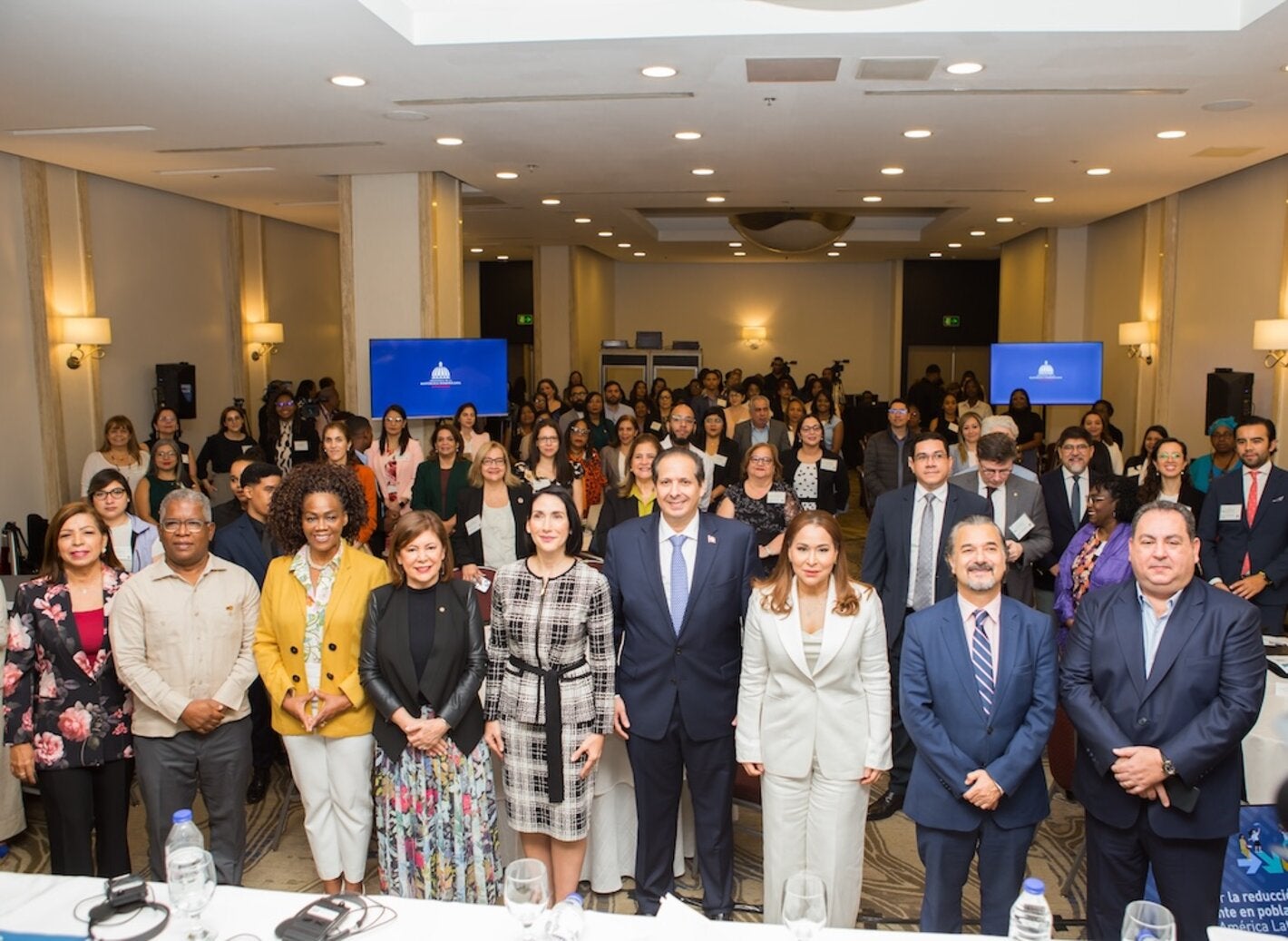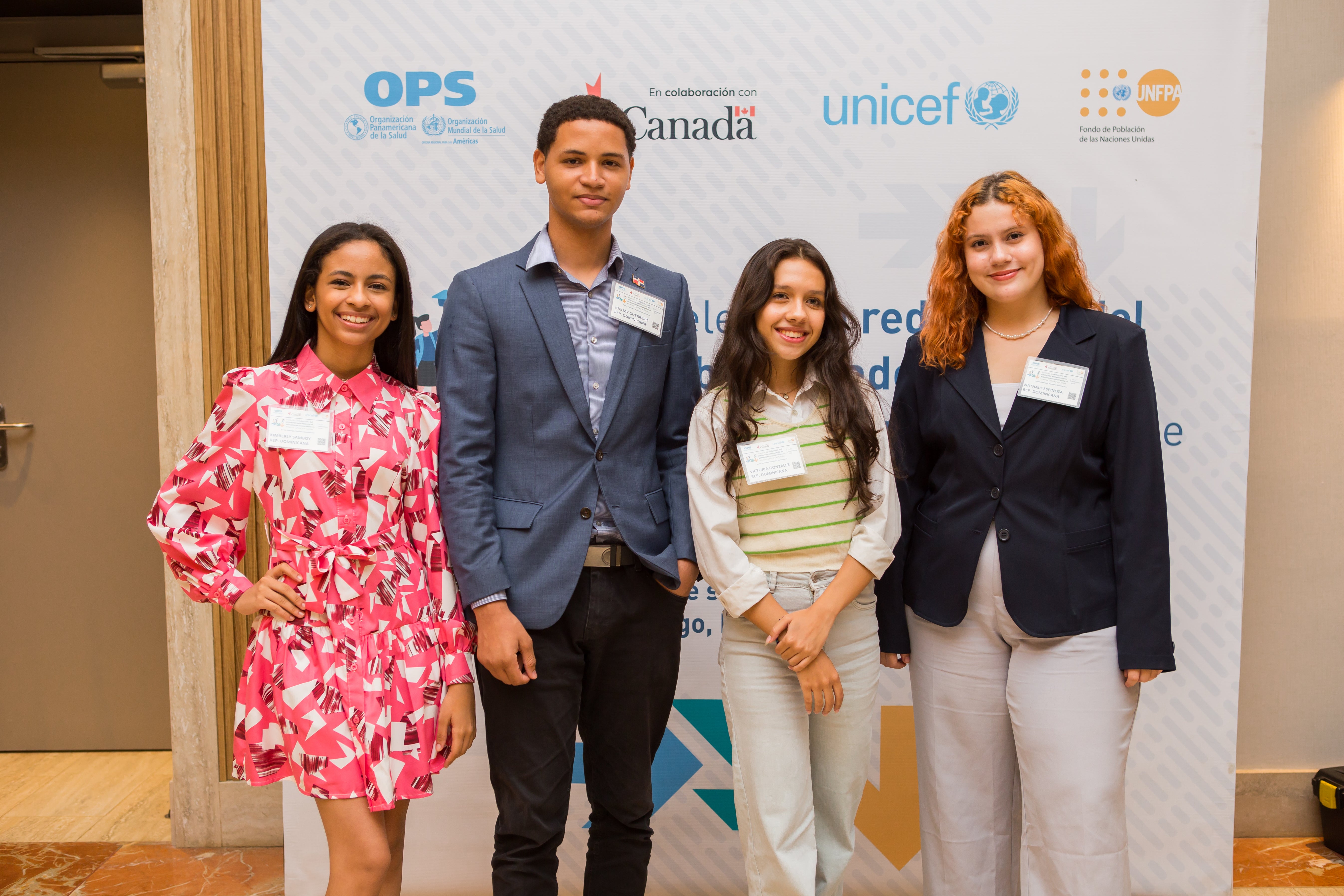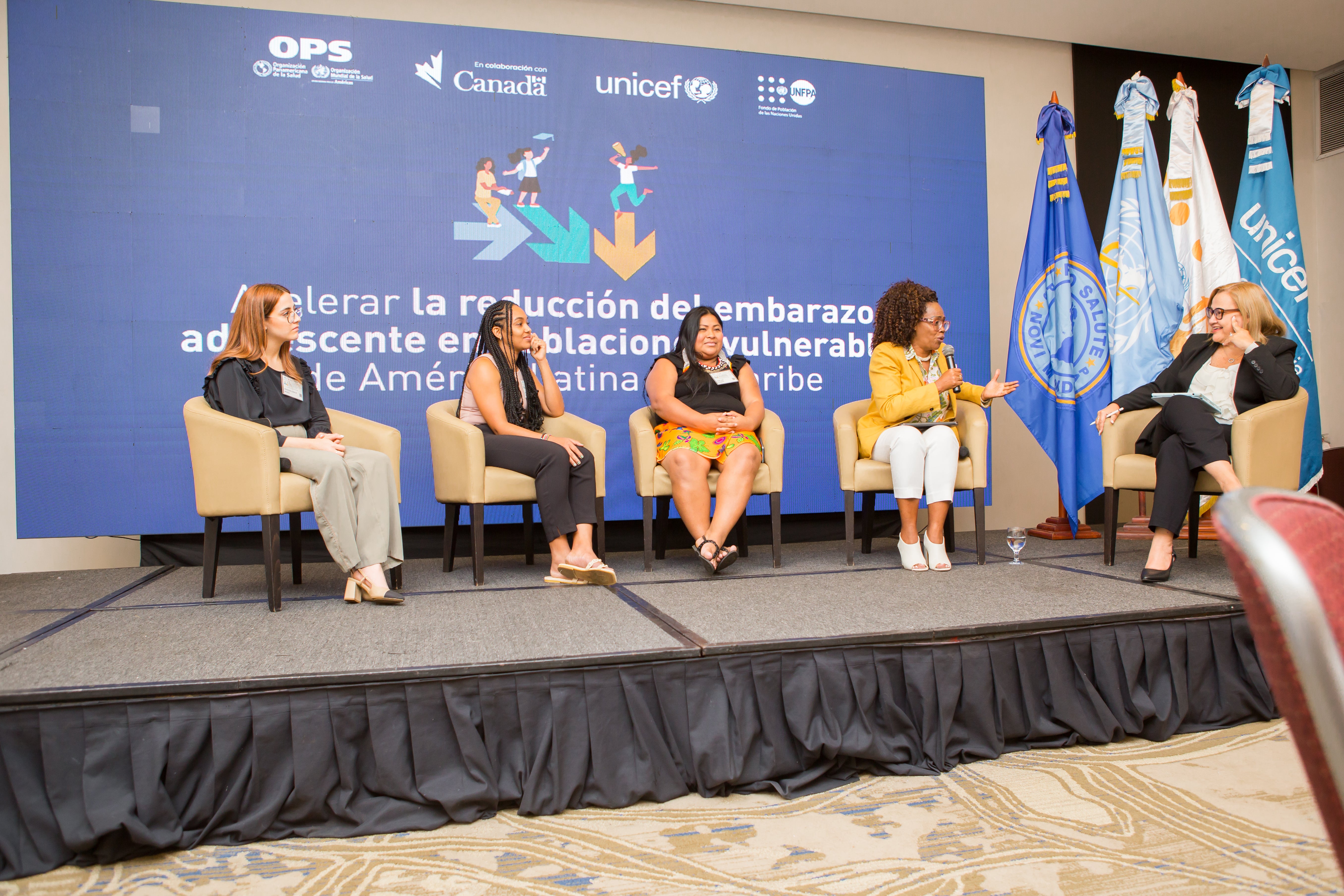
Santo Domingo, Dominican Republic, September 11-12, 2024 – In a joint effort to accelerate the reduction of unplanned adolescent pregnancies in vulnerable populations in Latin America and the Caribbean (LAC), a regional meeting was held that convened ministers, local authorities, experts, and young leaders to develop practical strategies to address this public health problem.
The event, held by the Pan American Health Organization (PAHO) together with the United Nations Children's Fund (UNICEF) and the United Nations Population Fund (UNFPA), with the support of the Governments of the Dominican Republic and Canada as well as support from the Universal Health Coverage - Partnerships (UCH-P). It was led by the Minister of Health, Víctor Atallah, and the First Lady of the Dominican Republic, Raquel Arbaje.
The event titled, "Accelerating the reduction of adolescent pregnancy between the ages of 10 and 14 and 15 to 19 years in vulnerable populations in Latin America and the Caribbean", it also seeks to reach agreements on solutions and practical approaches to identify and reach these groups.
Minister Atallah highlighted the importance of the event to analyze and address this problem in the countries of the region, which mainly affects the life trajectory of girls and adolescents living in situations of vulnerability.
He also stated that the Dominican government, through the Cabinet of Children and Adolescents led by the First Lady, is adopting clear and strategic policies that seek to prevent teenage pregnancy and eradicate child marriage, as well as to raise awareness in society about this practice at an early age, among other actions. "Important progress has been made in the country, but we must continue working since the fertility rate has been falling in the last three years, which shows that the actions are on the right track," he said.
The First Lady added that the meeting coincides with the national goals of minimizing teenage pregnancy. "So far, our statistics indicate a significant drop in teenage pregnancy of 26.58% in the first quarter of this year, compared to the same period in 2023, and this is the result of the Policy for Prevention and Care of Early Unions and Adolescent Pregnancy (PPA) presented to the country in November 2021 by President Luis Abinader."
She indicated that, although these statistics are encouraging, there is still a long way to go to dismantle the social and cultural structures that favor early pregnancy. Arbaje stressed that: "since the PPA began to be executed, the Ministry of Public Health and the National Health Service have raised the number of Adolescent Care Units to 38 and 546 health professionals at the first level of care have been trained."
The PAHO/WHO representative in the Dominican Republic, Alba María Ropero Álvarez, stated that "although notable progress has been made since the adoption of the Sustainable Development Goals, with a 20.9% reduction in adolescent fertility between 2015 and 2021, inequalities persist."
She reported that the adolescent fertility rate in the region is the second highest in the world, and continues to be unacceptably high, with great inequalities between and within countries. The estimated number of unintended pregnancies in girls between the ages of 15 and 19 in LAC in 2021 was 1,636,000.
The representative of the United Nations Population Fund (UNFPA), Mario Serrano, said that "adolescent pregnancy, in addition to placing adolescents and girls in situations of avoidable vulnerability such as maternal and neonatal deaths, school and university dropout and early unions, have socioeconomic consequences."
Serrano stressed that the estimates made by UNFPA in the country, with the MILENA methodology, concluded that Dominican adolescent mothers are losing income of more than RD $12,151,000,000 (US $245,000,000) million pesos per year; Added to this are the expenses in medical care for users in risk situations caused by early motherhood.
Similarly, Carlos Carrera, UNICEF representative, added: "Early unions are clearly associated with poverty, exclusion and vulnerability and adolescent pregnancies. The gap between adolescent girls in rural areas and those in urban areas or with higher levels of education is alarming. This severely limits the full fulfillment of their rights."
The high-level panels underscored the need to keep the issue of adolescent pregnancy prevention on the political agenda, and to improve efforts to reach indigenous and Afro-descendant girls in vulnerable situations. Over two days, participants assessed how to improve countries' capacity to collect and analyse disaggregated data, enabling effective identification of the subgroups most affected by unintended teenage pregnancies.
Most LAC countries that have data on very early pregnancies report fertility rates of between 1 and 5 births per 1,000 girls or adolescents in the 10-14 age group. Through discussions and working groups, participants shared actions to identify these groups and explored national and local strategies to strengthen responses to adolescent pregnancies. They also identified effective and sustainable multisectoral interventions to reach adolescents in vulnerable situations, with a focus on the prevention of unplanned pregnancies.
The authorities of the participating countries renewed their commitment to reducing unplanned pregnancies in girls and adolescents aged 10 to 19 years, both at the national and subnational levels. A consensus was reached on practical solutions to identify and support adolescent girls in vulnerable situations. The event concluded with an agreement to prepare a regional report detailing the commitments made and the strategies discussed.
The Inter-Agency Meeting underscored the collective commitment of Latin American and Caribbean countries to safeguard the health and future of their adolescent populations. By fostering dialogue and collaboration among key stakeholders, the meeting marked an important step forward in the region's efforts to reduce adolescent pregnancy rates and empower girls to thrive.
PAHO, UNFPA and UNICEF are working on the development of a regional guidance document with lessons learned in the response to pregnancies in girls under 15 years of age, which will be launched this year, and will serve as a guide to strengthen the actions of countries in the region.





